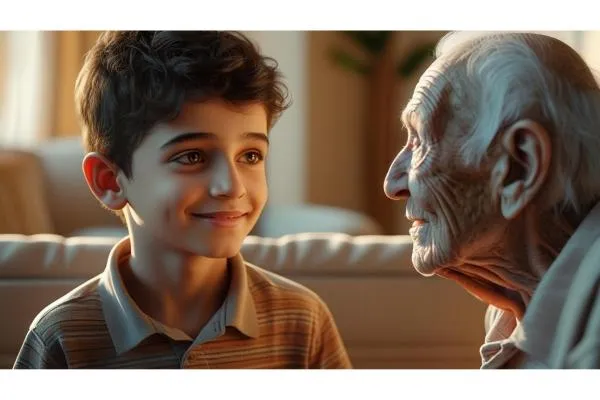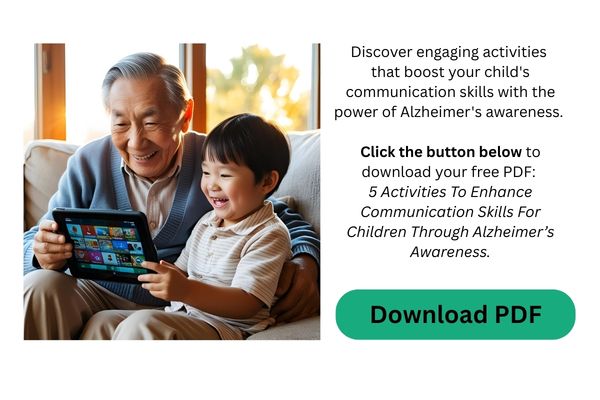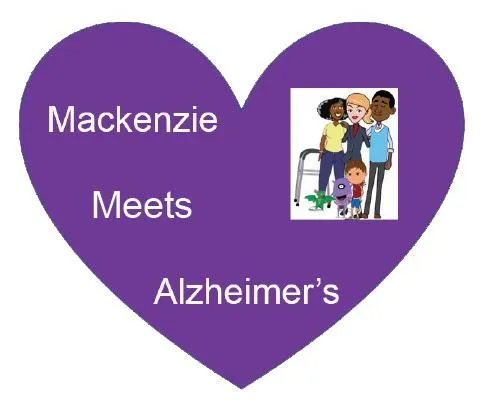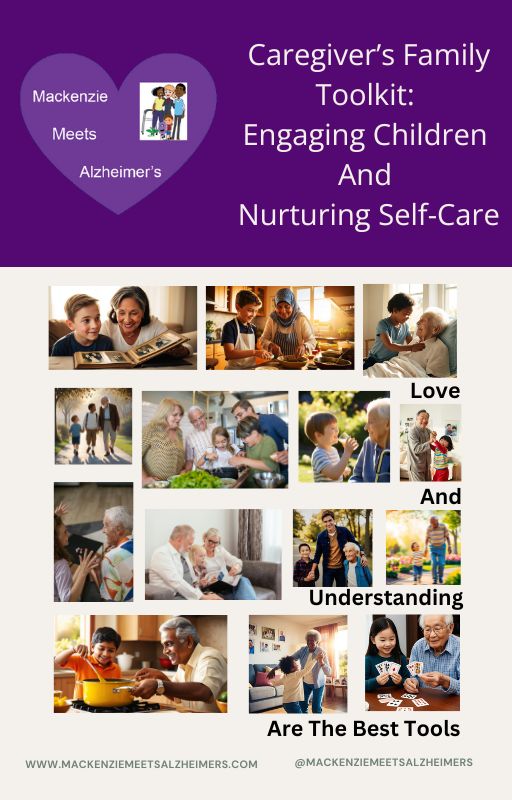
Enhancing Communication Skills Through Alzheimer's Education
Story
Mackenzie adored reading mysteries and wanted to be a detective. Her favorite person, Gran, often spoke in puzzling phrases. Lately, Gran frequently said, "I've got to go," over and over, leaving Mackenzie curious. Determined to uncover Gran’s meaning, Mackenzie sat with Gran in the garden.
Gran muttered again, "I've got to go."
"Where do you need to go, Gran?" Mackenzie asked gently.
Gran paused, her eyes distant. "To the garden in Surrey… the swing under the oak."
Each time Gran repeated the phrase, Mackenzie asked more questions, piecing together Gran’s cherished memories of her childhood home.
"What kind of flowers were in the garden?" Mackenzie prompted.
“Pink roses,” Gran smiled. "Your grandfather’s favorite."
Mackenzie realized that "I've got to go" wasn't just words—it was Gran’s way of returning to a time filled with love and happiness.
“Thank you for sharing, Gran,” Mackenzie said, hugging her tightly.
“For what, darling?” Gran asked.
“For taking me with you on your adventures,” Mackenzie replied, knowing she was discovering the beautiful tapestry of Gran’s memories, one phrase at a time.
Before we delve into the "how," let’s set the foundation with our free resource designed to make this journey smoother. Download below our free PDF on Enhancing Communication Skills for Children Through Alzheimer’s Education and empower your child with the understanding they need to connect meaningfully with their loved ones facing dementia.

Information
Are you part of the sandwich generation, juggling the emotional needs of caring for both a child and a parent with Alzheimer’s? You're not alone. One of the most challenging aspects of this experience is bridging the communication gap between different generations, especially when dementia is part of the equation.
What if there was a way to not only improve communication but also foster empathy and understanding in your child? You might be surprised to learn that teaching kids about Alzheimer’s can do just that.
Understanding Alzheimer’s Or Any Type Of Dementia For Children
Alzheimer’s/Dementia Awareness is not just for adults. Teaching kids about Alzheimer’s can dramatically improve their communication skills and emotional intelligence. For families dealing with dementia, it can be pivotal in creating deeper connections and ensuring that empathy flourishes in young hearts.
Communication isn’t just about words; it’s also about understanding and patience. Encourage your child to express themselves through storytelling or drawing, helping them to convey feelings they might not yet be able to articulate fully.
Creating a bridge between your child and their loved one who has Alzheimer's or any type of dementia requires patience and strategy. Here are a few tips:
Encourage open dialogue where your child feels safe to ask questions about Alzheimer's/dementia.
Promote family dementia education that includes kids in conversations about Alzheimer’s/dementia.
Foster an environment where both children and their loved one can learn from each other, potentially through shared activities or games.
Conclusion:
Ultimately, helping your child understand and communicate with someone who has Alzheimer’s is about fostering empathy, patience, and love. By incorporating Alzheimer’s education into your family life, you're paving the way for intergenerational communication that's not only effective but also deeply rewarding.
To dive deeper into strategies that work, make sure you click to get our free PDF on 5 Activities to Enhance Communication Skills for Children Through Alzheimer’s Awareness. This resource is designed to provide you with practical advice and activities that can transform your family’s interactions.

